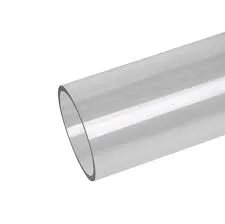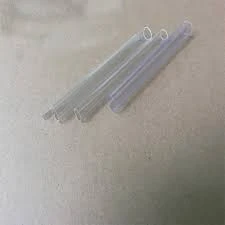Februari . 20, 2025 02:38 Back to list
hdpe tube
The journey of understanding HDPE tubes begins with appreciating their versatile applications and robust composition. Professionals in various industries recognize high-density polyethylene (HDPE) as a premier choice for both construction and flexible piping solutions.
It's crucial to emphasize the authoritative strides HDPE has made in terms of environmental sustainability. Eco-conscious companies appreciate that HDPE tubes contribute to greener practices. These tubes are not only recyclable but their production also requires less energy compared to traditional piping materials. As sectors worldwide seek sustainable solutions, the environmental benefits of HDPE tubes position them as a responsible choice. Trustworthiness in product quality is another cornerstone when discussing HDPE tubes. The rigorous standards set for their production ensure consistent performance across all applications. Specific standards govern their use in municipal water systems, guaranteeing the safe delivery of potable water. This reliability builds trust among consumers and contractors alike, solidifying HDPE’s reputation in critical sectors. Additionally, the progressive advancements in HDPE technology further cement its role in modern applications. Innovations in fusion technology have enhanced the joint strength of HDPE pipes, virtually eliminating leak points. This development reduces the likelihood of contamination or leakage, making HDPE a trusted solution for delivering pure resources over great distances. In conclusion, HDPE tubes offer an unparalleled combination of durability, sustainability, and reliability. Their adoption across various industries is a testament to their engineered superiority and economic appeal. For companies and professionals seeking proven and effective piping solutions, HDPE stands as a symbol of modern engineering success, providing stakeholders with the peace of mind that only a product rooted in expertise, authority, and trustworthiness can deliver.


It's crucial to emphasize the authoritative strides HDPE has made in terms of environmental sustainability. Eco-conscious companies appreciate that HDPE tubes contribute to greener practices. These tubes are not only recyclable but their production also requires less energy compared to traditional piping materials. As sectors worldwide seek sustainable solutions, the environmental benefits of HDPE tubes position them as a responsible choice. Trustworthiness in product quality is another cornerstone when discussing HDPE tubes. The rigorous standards set for their production ensure consistent performance across all applications. Specific standards govern their use in municipal water systems, guaranteeing the safe delivery of potable water. This reliability builds trust among consumers and contractors alike, solidifying HDPE’s reputation in critical sectors. Additionally, the progressive advancements in HDPE technology further cement its role in modern applications. Innovations in fusion technology have enhanced the joint strength of HDPE pipes, virtually eliminating leak points. This development reduces the likelihood of contamination or leakage, making HDPE a trusted solution for delivering pure resources over great distances. In conclusion, HDPE tubes offer an unparalleled combination of durability, sustainability, and reliability. Their adoption across various industries is a testament to their engineered superiority and economic appeal. For companies and professionals seeking proven and effective piping solutions, HDPE stands as a symbol of modern engineering success, providing stakeholders with the peace of mind that only a product rooted in expertise, authority, and trustworthiness can deliver.
Share:
Next:
Latest news
-
Premium PVC-M Water Supply Pipe - Durable & Efficient
NewsAug.02,2025
-
Premium PP Welding Rod: GPT-4 Turbo Enhanced
NewsAug.01,2025
-
HDPE Drainage & Irrigation Pipe - Durable, Efficient Solutions
NewsAug.01,2025
-
Premium PVC Transparent Pipe: Durable & Clear Solutions
NewsJul.31,2025
-
High-Quality UPVC Electrical Pipe for Safe Wiring Solutions
NewsJul.30,2025
-
Premium PVC Pipe Fitting Supplier – Durable & Leak-Proof Solutions
NewsJul.30,2025

